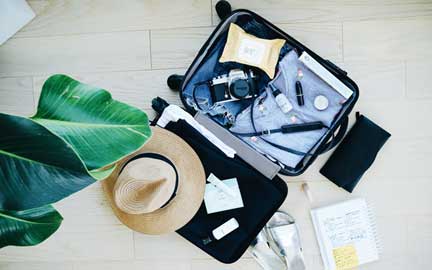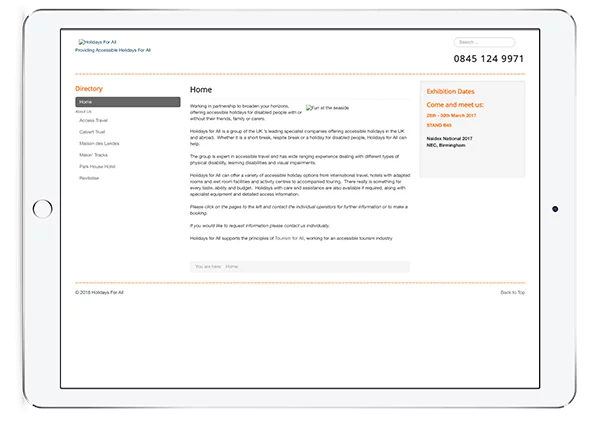
by Jon Pearce | 23rd Mar, 2022 | Lifestyle

How do I find a good job at 60?
Whether you’re nearing retirement age and searching for jobs for over 60s, or you’re helping an older friend or family member with their job search, you’ll find everything you need to get started here.
People approaching retirement age sometimes worry that they will find it more difficult to find work. Try your best to reframe these thoughts – after all, by the time you reach 60, you will have gained lots of valuable skills and life experience.
You’re also covered by the Equality Act 2010, which means an employer cannot decide not to hire you just because of your age.
Update your CV or resume
Before you start looking for jobs, spend some time working on your CV.
Did you know? In the UK, the average job advert receives around 25 applications, and recruiters only spend about 6 to 7 seconds looking at a CV before deciding whether to shortlist the candidate for an interview.
So, whether you have an existing CV or you need to create one from scratch, a good CV is essential to getting a job.
The key to getting a job in your 60s is showing prospective employers how your strengths will be useful to the role. Dig deeper than just your previous jobs – think about what you’ve done outside of work and how your acquired skills could be used in employment.
Be selective about what you include and try to keep the whole document to two pages or fewer – it’s always a good idea to highlight relevant experience in detail and list the non-relevant ones underneath.
Create an effective cover letter
Sending a CV, resume or application form isn’t always enough to stand out from the crowd. A cover letter can be used to detail exactly how you meet the requirements of the job role.
You can also include any critical information that is not covered in your CV, for example, gaps in your employment history.
Build up a network
From friends to family members, do you know anyone who could put you in touch with prospective employers? Does anyone you know work in a job role you are interested in?
Chat to a friend about your strengths and decide on a few ideas for potential career paths. You could also use an online assessment, such as the skills health check from the National Careers Service.
Register for online job alerts
There is a wide range of career websites for jobseekers on the internet. If you have been in the same job for some time, or you don’t have much experience with computers, this may seem daunting at first, but don’t worry, setting up an account is easy and straight forward.
Job sites can be used to search and apply for job opportunities. Many sites allow you to set up a profile and receive alerts when suitable jobs are advertised. Some sites even match you with prospective employers.
Which sites to use for job search
Most job vacancies are advertised online, so take a look at the following popular jobs websites to begin searching for job roles:
- Indeed – search for jobs, register your CV, and research employers.
- NHS Jobs – search for job vacancies in the NHS. Use the site to find and apply for jobs to match your skills and experience. Set up job alerts, and you will receive emails telling you about new vacancies you might be interested in.
- Civil Service Jobs – find and apply for jobs in the Civil Service.
- Reed – search and apply for jobs, and browse for career advice.
- Charity Job – find paid jobs for charitable organisations
- Totaljobs – search for jobs, set up alerts
- Monster – upload your CV and connect with recruiters, apply for jobs
You can tailor your job search according to your preferences. For example, you might choose to filter results by location, industry, or salary. If you’re only looking for part-time work, specify this in the search parameters.
Sign up for a LinkedIn profile
LinkedIn is a professional social media tool. Regardless of your age, it can be a powerful tool when searching for a job.
Many employers use it to find out more about people they have received a CV or application form from. Having a LinkedIn profile shows that you can use modern technology and that you have a proactive approach to job hunting. Employers can also use it to see your business connections.
Just like a CV, your LinkedIn profile needs to look professional and give relevant information on your skills and experience.
Track your applications
Consider using a simple spreadsheet to log the details of your job applications. Not only will this help you to stay organised, it is also a good way to practise your IT skills if they are rusty.
Include headings such as employer, date applied, job title, and a telephone number or email address for the recruiter or manager. If you’re shortlisted, add the details of the next stage of the hiring process. If not, always ask for feedback and keep a note of this on your spreadsheet for future reference.
Prepare for interviews
If you haven’t attended an interview for some time, you might feel unsure what to expect. Being nervous is normal but putting in the preparation will help you to feel more confident on the day of the interview.
Research the company and find out as much as possible about the employer and job role. If you haven’t been given a copy of the job description, ask to see this in advance of the interview.
If you are asked to sit a skills test or psychometric assessment, you can find a range of online practice resources. Make a short list of any questions you would like to ask the interview panel. This will demonstrate a keen interest in the job role.
Dress smartly for the interview, remember to smile, and make regular eye contact. Take a deep breath and try to relax – the interviewer will be keen to get to know you, so just be yourself.
It is important to remain positive during every stage of your employment search. Finding the right job role will probably take time, so try to be patient, and have faith in your skills and abilities.
If things are taking longer than you would like, try to focus on your existing hobbies and interests, or try something new. You could also consider voluntary work. Volunteering your time can help you meet new people, learn new skills, and make a positive contribution to the community you live in.
Help Available to the Over 60s
Age UK provides assistance to people over 60 who are looking for work. If you’ve barely used a computer or browsed the internet for work before, Age UK runs IT training courses for older people. For advice on computers and the internet, visit the Online Centres Network website.
If you don’t have internet access at home, get in touch with your local library to see if they can help. Alternatively, contact the Age UK Advice Line on 0800 678 1602.
Finding Age-Friendly Employers
The Centre for Ageing Better supports employers to implement age-friendly policies to benefit individuals, employers, and the economy. Older workers are often the most experienced people in the workplace.
Age-friendly employers take practical steps to create an age-friendly environment. Steps might include the elimination of bias in the hiring process, supporting changing health needs, flexible working patterns, and the provision of midlife support.
Renegade Generation is an independent resource for older jobseekers. It publishes an up-to-date list of leading age-friendly employers in the UK.
These include:
Charity experience is not essential when applying for roles with Age UK. However, you will need to be willing to take on new challenges. You will also need to have the desire to make a positive difference to the lives of older people.
Aviva strives to make a difference to the lives of its customers. It also prioritises making positive changes to the communities it operates in. Roles are available in all areas of the business, from Customer Service and Marketing to HR and Finance.
B&Q strives to create a ‘family’ feel environment for its employees. Employees receive support with their career goals. The company aims to help customers transform their homes to make their lives better.
Barclays is a well-respected global financial institution. Employees are supported to develop their skills and enjoy a rewarding career with this forward-thinking organisation.
British Gas prioritises an inclusive culture for its employees. It encourages staff to be themselves at work, and offers them the respect and flexibility they need to flourish.
The Department for Transport offers a variety of UK-based roles, from project management and policy advice, to accountancy and law. Employees should be self-motivated and comfortable to work in a team. Effective communication skills are essential. If you’re motivated about improving transport, you could be a good fit for this organisation.
McDonald’s advertises both restaurant positions and roles in its Birmingham and London office locations. 85% of McDonald’s employees say they are happy with the level of flexibility they have in their job role. Every year, the company invests £43 million in employee development training.
Sainsbury’s offers a variety of career paths, from store management to food innovation and agriculture. Whether you want to work in finance, marketing, or on the shop floor, Sainsbury’s offers a supportive, flexible working environment.
Working for the Co-Operative Group means that you can get involved in doing work that makes a difference. The Group is owned by 4.5 million members, and profits are shared with them and their communities. Co-Op is the UK’s number 1 funeral services provider, sixth-largest food retailer, leading UK insurance, and growing legal services provider. Choose from a variety of career paths according to your skills and experience.
Best Type of Jobs for Over 60s
Age is a protected characteristic under the Equality Act 2010. That means age discrimination is unlawful, so employers can’t reject your application because of your age. You can learn more about your rights on the Acas website.
With this in mind, you can apply for any job that interests you. When it comes to getting a job in your 60s, deciding on your personal priorities is key.
Your reason for job seeking will probably be relevant. If you’ve been made redundant after a long period of time in the same job, you may receive a redundancy payment. Depending on the amount received, this may allow you more time to find the perfect job.
If you want to change jobs due to your current working conditions, think about what you want to get out of your new job role. How many hours would you like to work, and can you be flexible about your working pattern?
Job satisfaction is important. Think about what you enjoyed most about your last job, as well as what you enjoy doing in your leisure time. Here are some ideas:
Gardening
If you enjoy gardening, you could apply for jobs at the local garden centre. There may also be gardening work available at nearby parks, hospitals, or stately homes.
Floristry
Floristry is an enjoyable career path for anyone who likes flower arranging. If you don’t have any experience, contact a few local florists to offer your time as a volunteer.
Customer Service
If you enjoy talking to people, consider applying for customer-facing retail roles or a job in a call centre. Whether you apply for a job in the local supermarket or look for a home-based role in telesales, positions in customer services will make good use of your communication skills.
Care Work
Whether you’ve raised a family, worked in a childcare setting, or taken care of an elderly relative, having experience of looking after others could make you a good candidate for care work.
Driving
Driving instructor jobs are a good choice for experienced drivers who enjoy driving. Apart from being a good driver, you’ll need to be patient, friendly, and able to give clear instructions. No qualifications are required, but you’ll need to pass the Approved Driving Instructors (ADI) standards check.
Other Paths
Self-employment is an option for older people looking for jobs. According to Age UK, the number of self-employed people aged over 65 has increased by more than 50% in the last five years. Just be mindful of the legal aspects and financial risks before making any firm plans.
Setting up a business is a good way to use your existing skills and knowledge to earn money. You could consider starting a business based on one of your hobbies or interests. If you enjoy baking cakes, you could work as a self-employed cake maker. If you enjoy painting and decorating, you could set up as a painter and decorator.
Being self-employed means you can work flexibly. You might decide to work during certain months of the year, or you might decide to only work weekends.
Depending on your career history, you might decide to set up as a consultant, working on a freelance basis. If you’ve worked in human resources, you could set up a consultancy offering advice to local businesses. If you’ve worked in management, you could set up a coaching business to help shape the leaders of the future.
When starting your own business, you will need to:
- Write a clear business plan, including an income and expenditure forecast for the next few years.
- Consider how you will fund your business plans. If you don’t have the money available, you will need to approach a lender. Banks have criteria in place to help them decide whether they are willing to lend money. Another option is to contact a Community Development Finance Institution, which offers loans to disadvantaged groups.
- Seek advice from HMRC. Working on a self-employed basis will have an impact on how much tax you pay and your entitlement to benefits.
Summary
Your age shouldn’t be a barrier to finding employment in your 60s. Like any jobseeker, you should prioritise finding work that you enjoy doing. Be clear about what you want from a job opportunity, and dedicate time to writing a good CV and preparing for interviews.

by mobilityplus | 30th Oct, 2019 | Lifestyle

Redesigning your space is a great way to breathe new energy and zest into your everyday life. As we get older our needs also change and so our home should adapt to our new lifestyle. Wondering how you can make your space more accessible? There are many simple and easy ways you can freshen up your space whilst future-proofing it for your daily needs. But where do you look for inspiration? We’ve found 7 interior podcasts to help you develop your creativity and make your homework for you.
But why are podcasts the right choice to discover new interior design and decor ideas? And where can you find them? We answer these questions and more, helping you navigate the world of podcasts. You certainly don’t need to be a techy person to figure them out. All you need is a computer, smartphone or tablet and a good internet connection, and you’ll be on your way to listening to your future favourites in no time.
What are podcasts?
Podcasts are a lot like radio talk shows. You can listen to them on-the-go, whilst out shopping, on the bus, in the car or even cleaning the house. They have become a popular tool for learning and personal growth, and because you can pause them, you can listen to them whenever you like.
The simplest way to listen to a podcast is by visiting websites like audible.co.uk. If you have an iPhone you can use the Apple Store app that comes with your phone, simply search your apps for ‘Podcasts’. If you have an Android phone you can search in the Google Play store for ‘Google Podcasts’.
So what are the 7 interior podcasts you need to listen to right now?
Style Matters
Style Matters has been running since 2014 and hosts a bevvy of design experts with handy tips and inspiring ideas of how you can make your home perfectly aligned with who you are. Co-hosted by design enthusiasts Zandra Zuraw and Karen June Grant, this podcast was created to help you “experience true delight and a feeling of grace, every day, in every room.” Cleverly categorised by topic, choose from ‘Develop Your Style’ to ‘How To Be A Minimalist’ and more.
Unofficial Fixer Upper Podcast
The Unofficial Fixer Upper Podcast is a fun and witty commentary on Gary and Kathy Leland’s favourite TV design shows. Sharing their thoughts on shows like ‘Fixer Upper’, ‘House Hunters’ and ‘Listed Sisters’, as soon as they air, you can expect, fun, laughter and thoughtful conversation.
Good Company
Perfect for anyone who wants to develop their own creativity, Good Company explores the ups and downs of the design process. Providing inspiration, motivation and practical advice, you can expect an interesting mix of design tips and insight into the lives of designers. Hosted by Grace Bonney, the show has a great roster of talented guests from Justina Blakeney to Genevieve Gorder.
Decorating Tips and Tricks
Inspiring you to create a beautiful home, Decorating Tips and Tricks is all about providing you with practical and useful decorating advice. Hosted by Anita Joyce and Kelly Wilkniss, you can expect lots of laughs and easy to follow tips. Episodes include, ‘Things You Should Not Keep’, helping rid your home of things that don’t serve you, to ‘Wallpaper, We’ve Got You Covered’, which explores the new products that make wallpapering easier.
Big Design Small Budget
Making luxury more affordable, Big Design Small Budget provides you with fresh tips from decorator Betsy Helmuth. Betsy has designed over 1,000 spaces and shares her tried and tested methods for designing your home on a budget. With a step-by-step approach, you’ll discover practical tips and design secrets from choosing your colour palette to selecting accessories like a stylist.
The Great Indoors
The Great Indoors is the best podcast to listen to for advice on the latest trends and hottest tips. TV presenter and designer Sophie Robinson and best-selling author and Journalist Kate Watson-Smyth discuss how to make your house a home, whilst unveiling the leading trends in interior design. Each episode includes contributions from an abundance of special guests, expect great conversations and useful advice.
Inside Design
Inside Design is a lively podcast with all the dos and don’ts of interior designing, including the best products to buy for your home. Hosted by nationally published interior designers, Joann Kandrac and Kelly Kole, expect a wealth of knowledge shared in a fun and humorous fashion. From discussions about the best white paint colours to choose, to the latest bathroom trends you’ll gain a lot of wisdom from this podcast.
Interior Style Hunter
Finally, we thought we’d leave you with a little bonus. Hosted by Grant Pierrus, Interior Style Hunter has been created by the award-winning London based luxury interior design blog. Grant believes that everyone should have access to good design, and shares easy to follow design rules and principles you can use to make your space better.
So, that’s a look at some of the best interior podcasts you can listen to these days. That should help you develop your creativity and make your homework for you. For more inspiration read our article on Bathroom Style Ideas

by mobilityplus | 4th May, 2018 | Lifestyle

Travelling abroad to a new place is extremely exciting but it can also be intimidating, especially as we get older. With an increased risk of trips and falls, senior citizens should always take extra safety precautions to avoid any mishaps along the way.
However, potential misfortunes should not stop you from travelling the world and seeing amazing places. Instead, follow these five travelling tips to put your mind at ease and get you excited about your next trip away!
#1 Carry out detailed travel research
When you’re getting ready for your next trip away, organisation is key. Whether you’re travelling alone or with family or friends there are lots of elements to research to ensure you have a relaxing and stress-free trip away.
Carry out research into your chosen destination to see what transport links there are, what type of cuisines are available, what the weather will be like and what type of entertainment and activities are on offer. Your research will create a clear picture of what your holiday might be like. If you can imagine yourself having a great time in your chosen destination, then this is the place for you!
It is also worth taking a look into any local customs to see what types of social behaviour is culturally appropriate. For instance, some destinations will expect you to dress appropriately in supermarkets or be respectful when you’re talking about local cultures and traditions.
#2 Choose the right disability options
If you need assistance throughout your trip, ensure that you select any necessary disability options while you are booking your travel arrangements.
For instance, airlines such as British Airways, Qatar Airways and Air France all offer a number of services that are tailored to the needs of senior passengers or passengers with reduced mobility or disabilities.
The same applies regarding your accommodation. Ensure that the hotel, B&B or villa that you choose has the right mobility options for you, such as grab rails in bathrooms, walk-in baths, walk-in showers or wide entrances. It is also worth contacting your chosen accommodation ahead of your arrival time, so they can carry out the appropriate preparations for your stay.
#3 Travel at the right time of day
The time of day that you choose to travel can make the world of difference when you begin your trip. Travelling during the early morning or late at night can not only be exhausting but it can also affect your eating and sleeping habits.
Opting to travel during the day, such as late morning and during the afternoon can be easier and stress-free. Transport schedules will be running at full capacity, so you’ll be able to easily move around and make your way to hotels or excursions.
Transport links, such as flights or coaches, may be more expensive during the day rather than in the early hours, however travelling during the day usually means that there are lots of staff members on hand to support you throughout your journey.
This is also the case for non-stop flights. If possible, book a non-stop flight to minimise any potential stress of catching your connecting flight, or spending a period of time in an unfamiliar airport waiting to start the next leg of your journey.

#4 Print out all of your travel documents
Print out all of your travel documents, including flights, connections and hotel confirmation documents so you can have them at hand when you check in. If you will be navigating yourself around during your travels consider buying a map of the local area so you can keep track on your whereabouts.
It is also worth leaving a copy of your documents with a friend or family member so they can make arrangements if you experience any delays.

#5 Pack things practically
While packing for every possible holiday occasion along with every possible toiletry may seem like a good idea at first, when it comes to travelling, write a list and pack light.
Try to minimise the weight of your bag by purchasing any necessary toiletries at your destination. Then see if your accommodation offers a laundry service so you can wear outfits more than once and keep the weight of your luggage down as much as possible.
However, remember to keep your medication in your carry-on bag so you can take it whenever your prescription requires. It is also worth carrying water and healthy snacks with you, so you can stay hydrated and refreshed throughout your journey.
Your senior years are a great time to visit new locations and experience new lifestyles and cultures. Follow these tips to travel well and travel safe so you can fully enjoy yourself on your next holiday!

by mobilityplus | 5th Mar, 2018 | Lifestyle
Nobody likes spending hours and hours cleaning the bathroom. It can be one of the most laborious of household chores.
So, how can you stay more on top of your bathroom, and keep it clean all week round? We’ve rounded up some simple tips to help you do just that.

1. Keep your cleaning supplies in the bathroom!
This tip is the best way to make it easier to clean the bathroom. By keeping your cleaning supplies in the bathroom, you can just do a bit whenever you’re in there. No more trekking all the way downstairs! Plus, if it’s within arm’s reach, you’re more likely to use it.
2. Grapefruit and salt
How often you have to clean your bath depends on what the tub itself is made from. Most tubs are either acrylic or fibreglass. Fibreglass tends to be more porous, and as such can take up dirt and discolouration a lot easier. On the other hand, acrylic tubs tend to be easier to clear, but you need to use cleaning compounds that are not very harsh.
If you’ve got a walk-in bath, you may think this is an even greater task. But it doesn’t have to be!
If there is some slight discolouration to your tub, don’t treat it with harsh chemicals. Instead, just use half a grapefruit and some table salt. You’ll get a spotless and fragrant tub that simply needs a rinse to remove the salt.
3. Use a bleach pen on your grouting
Grouting can often look bad as a result of bacteria being allowed to grow in the grouting, and discolouring it. If you haven’t got easy to clean antibacterial wall panels, like the ones we offer with our bathrooms, you might need to work on cleaning this up.
If you want to make your life easier, consider using a bleach pen to get rid of the discolouration on your grouting. Your tiles will look at fresh as the day that they were laid!
4. Lemon for chrome
Chrome fittings can be a real pain to clean, but also keep clean. A lot of baths and showers, including ours, are fitted with chrome or metallic fixtures.
If you’re struggling to keep them clean and streak-free, why not try using lemons?
Lemons are great for cleaning chrome fittings in any bathroom. Simply cut a lemon in half and rub it on the chrome fittings to get a shiny and spotless finish.
5. Don’t let mildew set in
The best way to stop mildew building up over time is to never let it set in. Some showers, like our walk-in showers, have easy clean wall panels that prevent mildew setting into the tiles.
However, if you don’t have easy clean wall panels, you should use a squeegee to wipe down the walls, tub and shower doors. Those extra couple of minutes can really help to minimise your cleaning time in the long-run.
6. Put your shower curtain in the washing machine
Shower curtains can end up looking grotty and unclean after a little while, but rather than buying a new one each time, you can simply throw it in the washing machine. Just don’t go over 40 degrees!
By following these small, simple steps every day (or every other day) you’ll help keep your bathroom clean and tidy. An oasis of calm at the centre of your house, ready for you to step inside and have some proper relaxation.
Mobility-Plus bathrooms are designed to help you keep your bathroom cleaner and germ free. With all of our installations we provide a handy guide on how to maintain your bathing products fitted by Mobility-Plus.

by mobilityplus | 12th Sep, 2017 | Lifestyle
Spring is now definitely on its way and as the sunshine begins to creep out from its hiding place behind the clouds, it’s time to start thinking about where you’ll be enjoying it. Throughout the spring summer period, we’ll be bringing you some ideas and tips about things to do and places to visit in the UK. We live in a beautiful country, it’s just about finding those hidden gems.
5 things you have to do in Devon
To kick off, we’re starting with Devon. So here our top 5 must visit places in the beautiful south-west county.
Hele Corn Mill and Tearoom
Hele Corn Mill dates from 1525 and is a unique working watermill in North Devon. You can find the Hele Corn Mill right near Hele Bay beach, a visit to the mill makes a perfect family visit. Guided tours are given by the family who run the mill, and children and adults alike will enjoy learning about the history of the mill. One of the highlights of our tour is our 1920s National engine which is in full working order and can be demonstrated for you in our guided tours. Perfect for a trip with the grandchildren.

Royal Albert memorial museum
Not only does the RAMM boast some stunning architecture, but it is also home to some rare historical artefacts from the world of science, literature and art. The idea of the museum dates back to the early 19th century with the purpose of supporting education in these areas. This educational nature of the project was supported by Prince Albert which is where the name originates. Definitely worth a visit, especially if you have interest in culture.

Hawk walks
One for the bird lovers, or even just the great outdoors. A short excursion out in the countryside of Exmoor with stunning views and of course, those beautiful birds of prey. You can get up close and personal with the Hawks and watch as they fly over the skyline with elegance. If you consider yourself a bit of an amateur, or even professional photographer, it’s a great opportunity to get some stunning shots in the heart of the Devonshire countryside
.
Walking at Lydford Gorge
Lydford Gorge, also known as the ‘White Lady Waterfall’, is the deepest gorge in the South West with a spectacular 30ft waterfall. The base of the waterfall can be easily reached where you can stand and admire sheer beauty of the nature that surrounds you. Why travel the world to be in a picturesque setting when you can have it on your door step.

Blackpool Sands beach
And then there are the beaches. How could we forget the beaches of south west England. Some of the most spectacular beaches in the country, some so beautiful you’d think you were in the French Riviera. Enjoy the white sand, blue sea and refreshing sea breeze at our favourite Blackpool Sands Beach. The picture speaks for itself.


by mobilityplus | 12th Sep, 2017 | Lifestyle
With summer finally here, many of us are turning our thoughts to taking a break. Finding, booking and arranging the right destination can be a major headache for even the most enthusiastic holidaymaker, but especially so for those with mobility problems, who have a range of extra considerations to factor into their choice.
From the availability of mobility scooter hire to walk-in showers or wheel-in showers, many people require certain essentials which can’t be regarded as a given in every accommodation.

What to look out for
A hotel, B&B or cottage may look stunning and claim “disabled access” on its website, but the term is often applied very loosely. It could mean nothing more than having a ramp alongside the steps at the main entrance, but be wary when no specific details are provided, for example, about bedroom and bathroom facilities.
Does it have a room with an easy-access shower or easy-access bath? Are grab rails provided in important locations? For many people of restricted mobility, little details like those provide the comforts that make the difference between a good and a bad holiday experience.
In a previous blog post we touched on mobility issues to consider when you go away, and here’s the good news: a select number of travel companies specialise in sourcing and arranging holidays which take these issues into consideration. A number of agents have portfolios of accommodation which is specifically designed to cater for all levels of mobility. To point you in the right direction, we’ve listed five websites which could take care of all your holiday hassles…

1. www.enableholidays.com
With a range of options, from cruises to city breaks, Enable Holidays have a real understanding of accessibility needs in all their various forms – their experts can create a holiday that’s tailor-made for your specific requirements, from airport transfer to your choice of resort.
Offered at global destinations, from Madeira to the Caribbean, each holiday property they feature has been visited and fully checked out by a qualified Enable auditor.
Their Accessibility Audit covers 150 vital areas, including details on adapted rooms, wheel-in showers, door widths, pool hoists, adapted transfers and much more besides.
Start planning your next trip away with Enable Holidays today.

2. www.accessibletravel.co.uk
If you’re looking for a package holiday, Accessible Travel & Leisure is one of the UK’s leading specialist tour operators catering for disabled people and less-mobile holidaymakers. Founded in 1997 by experienced travel professionals, the company combines extensive knowledge and empathy with your personal needs.
The Managing Director, Andy Wright, is a wheelchair user and family man who has experienced the challenge of travelling with a disability. They only recommend tried-and-tested destinations that the team has visited. The impressive range of options featured on their website includes resorts in the UK, Europe, the USA and Africa.
Check out their chosen destinations here.

3. www.canbedone.co.uk
Can Be Done’s reservations team includes over 30 years of experience in booking holidays for people with disabilities, and they take responsibility for every aspect of your trip. With worldwide destinations ranging from Belgium to Barbados, the majority of their holidays include private transfers and mostly in wheelchair adapted vehicles.
They take great care to select only hotels that offer a level of accessibility which satisfies their high standards – for example, they won’t work with accommodation suppliers who do not guarantee a wheelchair-adapted room at the time of booking.
Speak to an expert at Can Be Done today.

4. www.disabledholidays.com
Disabled Holidays (originally called the Disabled Holiday Directory) was launched in 2001. Their team endeavour to take away your worries by providing you with all the support you need at every step, including choosing, booking, preparing to go, travelling, holidaying and coming home.
It is an excellent online resource offering a host of useful information, including disabled travel insurance, last minute deals and accessible cruise trips.
You can choose from an impressive variety of destinations, whether you want to enjoy an adventure to Disneyland with the whole family or settle into a quiet Cumbrian cottage and savour the scenery of the Lake District.
Disabled Holidays are the UK’s largest accessible holiday specialist, so you can be sure you’ll find the right holiday package for you. Search for your perfect destination now.

5. www.holidaysforall.org
Holidays For All is a group of the UK’s leading specialist companies offering accessible holidays in the UK and abroad. The group offers expertise in accessible travel and has wide-ranging experience dealing with different types of disability.
Holidays For All can offer a variety of accessible holiday options which provide adapted rooms and adapted bathrooms. From international travel, activity centres and accompanied tours to accessible canal boat and tall ship sailing, they aim to offer something for every taste, ability and budget.
Holidays with care and assistance are also available if required, along with specialist equipment and detailed access information, check out the Holidays For All website today.






















